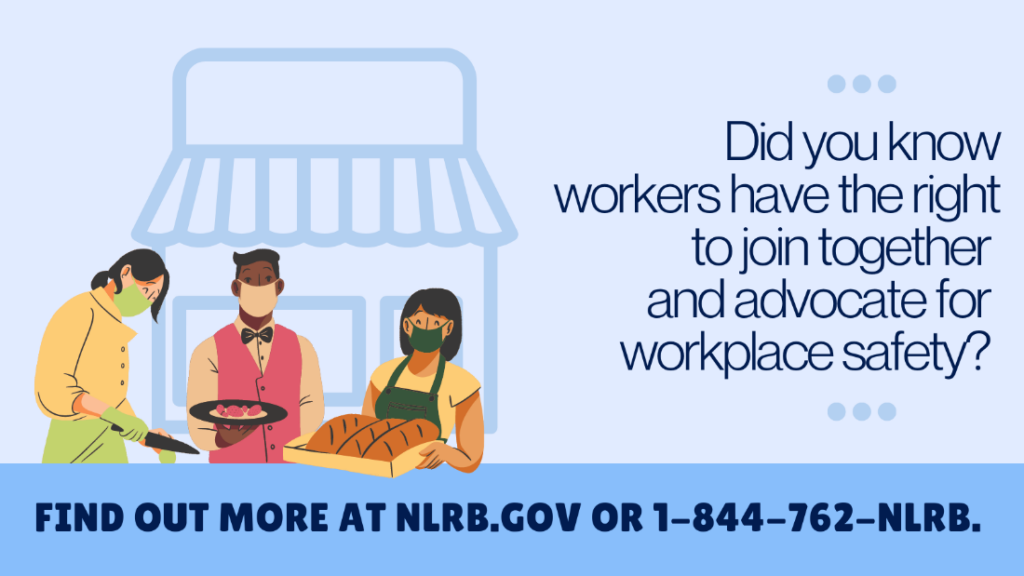Whistleblower protections
You have the right to be protected from retaliation.
A whistleblower is someone who reports workplace conditions that they believe to be unsafe or illegal. As a whistleblower, you have the right to be protected from workplace retaliation by your employer for reporting injuries, safety concerns, or other protected activities. Retaliation, or “adverse action,” can include, but is not limited to, firing, preventing someone from getting another job, or denying benefits to or making threats against a worker.
You should not be discriminated against for exercising your rights, including your right to:
- file a complaint with the Occupational Safety and Health Administration (OSHA).
- seek access to employee exposure and injury records maintained by your employer.
- report a work-related injury.
- request an inspection from OSHA, and speak to the inspector.
- raise a safety or health complaint with the employer.
If you have been retaliated or discriminated against for exercising your rights, you must file a complaint with OSHA within 30 days of the alleged adverse action.


Questions?
We’re here to help.
We are committed to helping you understand your rights as a worker. You may wish to visit OSHA’s Whistleblower Protection Program website to learn more:
For additional assistance, please contact:
OSHA at 1-800-321-6742
All discussions between OSHA and employees or their representatives are free and confidential. Safety and health complaints from employees or their representatives are taken seriously by OSHA, and OSHA will keep their information confidential.
You also have a right to be protected from retaliation regardless of your immigration status. This includes retaliation based on your immigration status, such as threats to call immigration authorities. In some cases, immigration status may limit the remedies that you’ll be able to obtain if your employer unlawfully retaliated against you. DOL staff and investigators can provide you with more information about your rights in such cases.
The National Labor Relations Act also protects your right to engage in “concerted activity” – which involves employees coming together to improve their workplace, including safety and health on the job. An example may involve two or more employees discussing work-related issues in addition to pay, such as safety concerns, with each other, or an employee speaking to an employer on behalf of one or more co-workers about workplace safety.
Additional resources
elaws Safety and Health Advisors
Employment Law Guide: Whistleblower and Retaliation Protections
OSHA Fact Sheet: The Whistleblower Protection Program
Protection from Workplace Retaliation
OSHA Resources on Worker Rights
OSHA Video on Workers’ Safety and Health Rights on the Job
